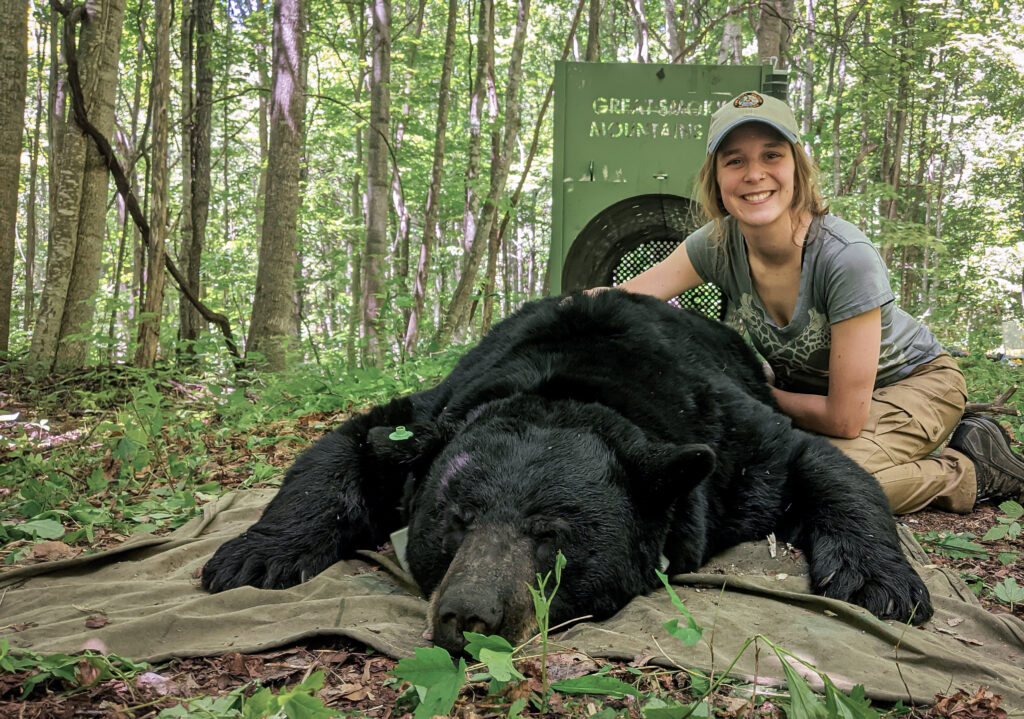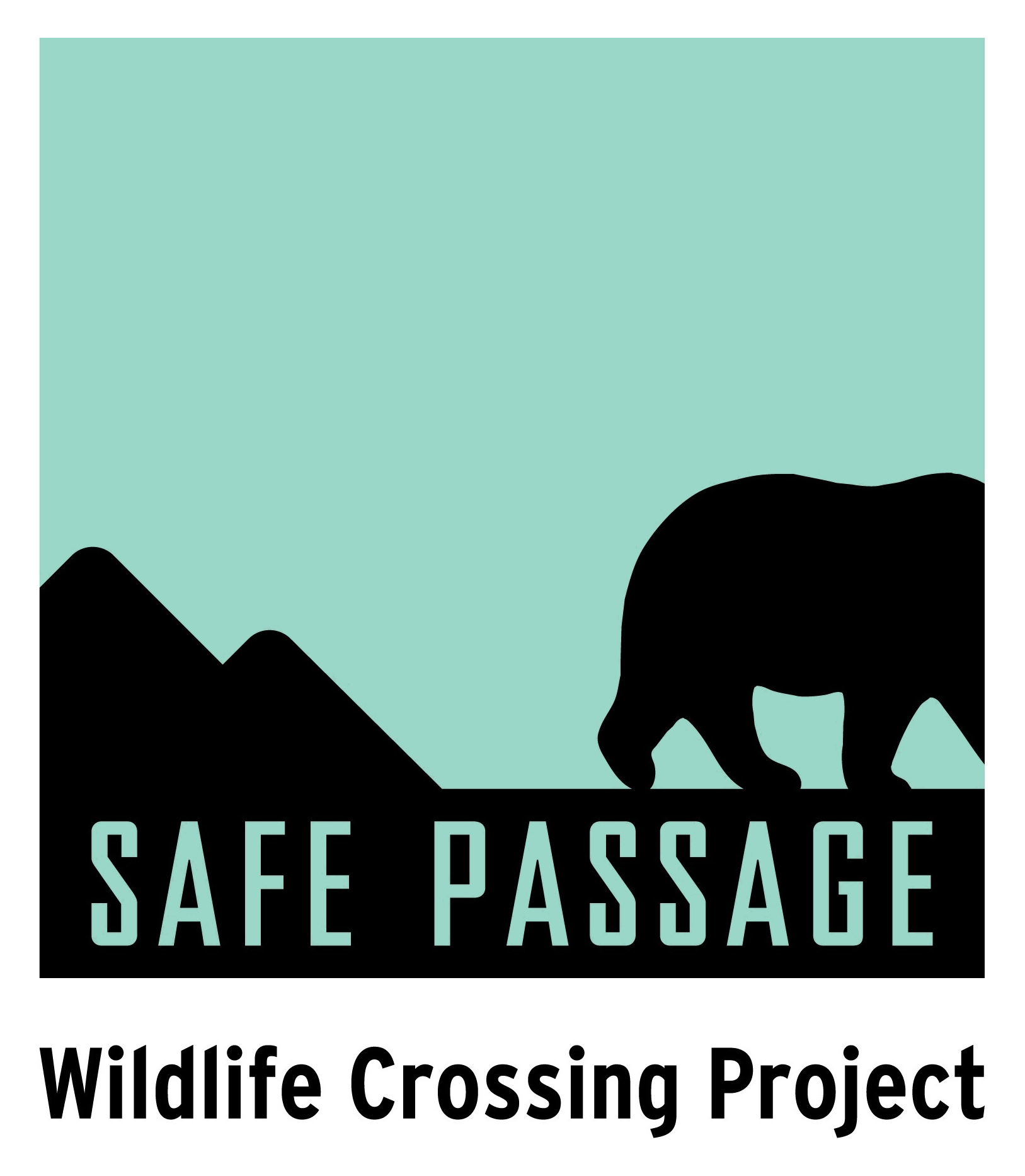By Kimberly Smith
EBCI Citizen, Southern Appalachian Representative for The Wilderness Society and Safe Passage Outreach Committee member
In March, we celebrated Women’s Herstory Month and recognized the invaluable contributions of women in the field of science and conservation. As a member of the Safe Passage Outreach Committee and a graduate of the University of Tennessee Knoxville (UTK), I am excited to shine the spotlight on a remarkable woman, Kristin Botzet, a UTK MS candidate, whose groundbreaking research is shaping the future of wildlife conservation in the Safe Passage I-40 Pigeon River Gorge project area and throughout the Southern Appalachian Mountains.
As we know, the Pigeon River Gorge is a critical corridor for wildlife and human movement. Here, Kristin and her team researched bear movement patterns. “While conducting my graduate research assessing the movements and outcomes of relocated black bears, I observed a remarkable occurrence,” she said. “One of the bears managed to navigate across I-40 an astounding seven times in a single month. Anyone familiar with the area, and that route knows what a feat that is; many bears don’t share that kind of luck.” Their findings are not only shedding light on the behavior of these iconic creatures but also informing conservation efforts to protect their habitat.
Beyond research, Kristin is passionate about engaging local communities and raising awareness about wildlife conservation. She gives presentations on bear biology and wildlife career opportunities to school groups at the Tremont Institute in the Great Smoky Mountains National Park. Through outreach activities and educational programs, she aims to inspire a new generation of conservationists. Safe Passage’s collaboration with grassroots organizations and Indigenous communities further amplifies their impact, fostering a deeper connection between people and nature. By being stewards of the land, we become the voices for those without words, the advocates for ancient trails, animals, plants and waters. Safe passage isn’t just about roads for two-legged; it’s about access for all, ensuring all creatures on this land and in these waters can journey unimpeded, that their habitats are intact, and their futures intertwine with ours.
Adult bears that become accustomed to foraging for human food or garbage may grow bold or persistent, prompting park rangers to capture and relocate them outside the park, hoping to help mitigate any potential human–bear conflicts.
But what happens to bears after they are relocated?
Recently, a research team from the University of Tennessee in Knoxville (including graduate student lead researcher Kristin Botzet) set out to answer that very question — and they found that these bears often die within a few months of being moved. Many are struck by vehicles while attempting to cross roadways, including I-40, as they try to make their way back to the park.

Kristin’s journey into wildlife research is a testament to the power of passion and perseverance. Inspired by her childhood love for the outdoors, she embarked on a quest to explore her curiosity of animal movement patterns. “I have always been intrigued by the natural world, but in ways beyond thinking animals were cute and cuddly,” she said. “My childhood was devoured by endless hours playing ‘Zoo Tycoon’ and studying my grandpa’s animal encyclopedia. I even repeatedly rented the same ‘Really Wild Animals’ VHS tapes.” From her early days exploring nature to her current role as a M.S. candidate, Kristin has overcome challenges and blazed a trail for women in science. “Today, my 8-year-old self would be very proud. She answered the famous ‘What do you want to be when you grow up’ question in my third grade yearbook with ‘wildlife biologist,’ and here I am.”
As Kristin continues her research journey, her vision for the future is clear: to bridge the gap between science and advocacy. “I hope that my work inspires not only women but anyone who has a spark of interest in the field of natural resources and ecology,” she said. “The field of wildlife research is small, but critical, especially today. We need more people willing to contribute to meaningful change, and frankly, it’s a career path often overlooked because it really isn’t talked about in our primary education system.” With Safe Passage’s support, she hopes to translate her findings into actionable solutions, advocating for wildlife conservation at the local, state, and national levels. Together, we are building a more sustainable future for wildlife and humanity alike.
